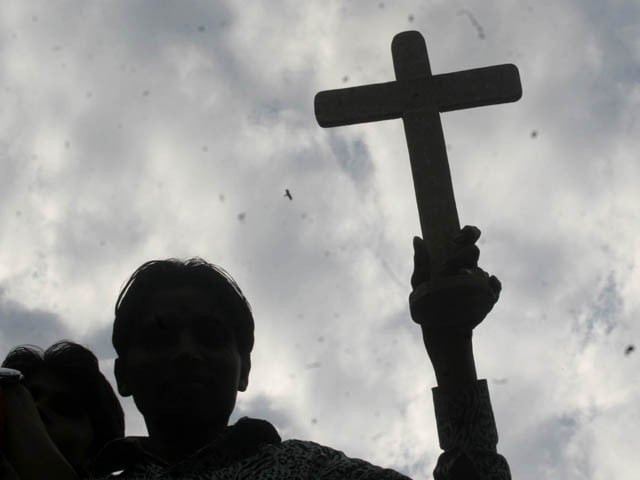Trailblazer: Sindh Assembly passes forced conversion bill
Govt taking steps to put an end to forced conversion

Ecclesiastical representatives say court overstepped jurisdiction. PHOTO ATHAR KHAN/EXPRESS
The private bill, Criminal Law (Protection of Minorities), was tabled last year by Pakistan Muslim League - Functional (PML-F) parliamentary leader Nand Kumar. It was referred to the standing committee for minority and human rights and returned to the assembly after a few months’ deliberation.
Though the bill was not on the agenda, after consultation with the Pakistan Peoples Party (PPP), Kumar sought the speaker’s permission to raise the issue before the bill was passed unanimously.
“For the last few days, my very important bill has been pending,” said Kumar. “I request you to relax the rules to give me permission to move this bill.” After getting permission from speaker he moved the bill and said that forced conversion is a blot on the face of Sindh’s culture, where Muslims and Hindus have lived together for centuries. “Every other day there are reports of minor girls belonging to non-Muslim communities being forced to convert. This bill will end this inhuman practice,” said Kumar, adding that the Constitution accords all citizens the right to choose and practise their own religion and the freedom of choice of marriage.

“I am very thankful to the PPP government for giving me permission to [present] this bill and for supporting this important legislation,” he said. All the opposition parties also supported the bill.
According to the bill’s objectives, the law will focus on recognising the right to freedom of religion of all persons, the right to freedom to marry and freedom of choice of marriage of all persons. “Forced conversion is an abhorrent, violent offence and an issue that has become prevalent across Sindh and must be eliminated by recognising the importance of tolerance, peace and respect for all religions and persons, irrespective of their religion,” read the salient features of the bill.
After the law is passed, it will be necessary to criminalise forced conversions and provide protection to victims. According to the bill, change of religion will not be recognised until the person reaches 18 years of age.
Defining the punishments for forced conversion, the bill says any person who forcefully converts another person shall be liable to imprisonment for a minimum of five years and maximum of life imprisonment and a fine to be paid to the victim. Whoever performs or facilitates a marriage while having knowledge that either or both the parties are victims of forced conversion shall be liable to imprisonment for minimum three years or a fine to be paid to the victim.
“This shall also include any persons who have provided logistical support or any other essential services for the marriage ceremony,” the law said, adding that in case of forced conversion, the accused shall also be liable for kidnapping, abduction and inducing a woman to marriage.
Regarding the mechanism of complaints, the law states that the victim, any person authorised by the victim or an informer may present a petition to the court complaining about forced conversion. “The court shall fix the first date of hearing, which shall not exceed seven days from the date of the receipt of the petition by the court,” the law said, adding that any case of forced conversion before the court shall be disposed of within a period of 90 days.
Shelter to victims
“The victim shall be given temporary custody in a shelter home during the pendency of the trial,” states the bill. It further said that the court may use its discretion in the interest of security to withhold the information of the location of the victim. “Any person who discloses the location of the victim shall be liable to penalties as contempt of court as under the Contempt of Court Act, 1976,” the law said, adding that the court can allow the alleged victim 21 days to make their decision regarding the conversion before initiating a case of forced conversion.
The Pakistani government is obligated to fulfil its commitments under international human rights conventions for the elimination of all discrimination against women, said Minority Affairs Minister Khatu Mal Jewan. “This is a serious issue and this legislation was not possible without the PPP’s support,” he said, adding that the PPP chairperson, who is vocal about minority rights, gave directives to have the bill passed as soon as possible.
Published in The Express Tribune, November 25th, 2016.



















COMMENTS
Comments are moderated and generally will be posted if they are on-topic and not abusive.
For more information, please see our Comments FAQ